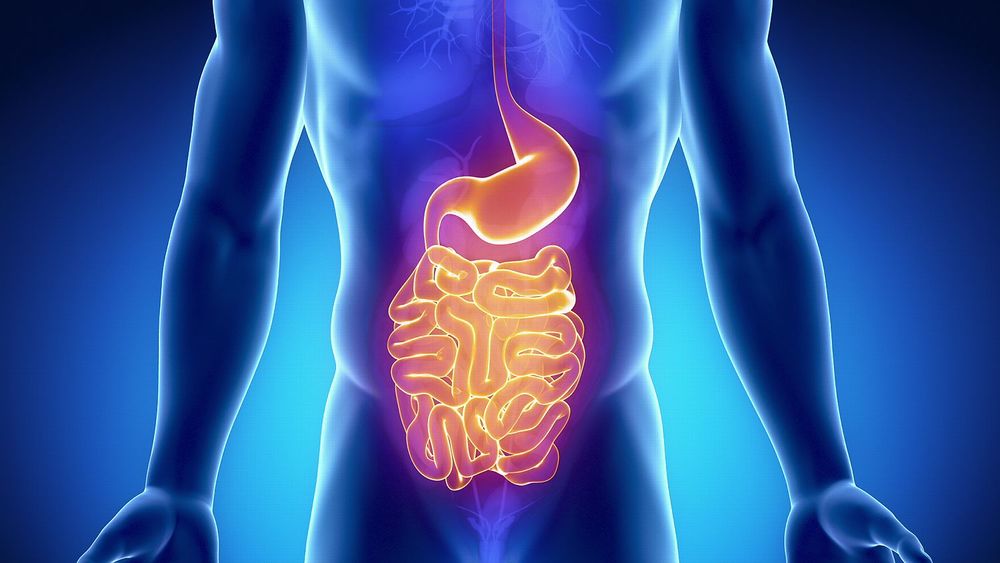Got a Rumble in Your Tum? Take a Look at the Top 10 Digestive Issues
May 16, 2016
 676
676 
Digestive problems are among the most common health issues we collectively experience. If you have never suffered from some sort of digestive disorder, you’re extremely lucky . . . but you also likely know someone that has! Whether it’s an occasional bout of diarrhea, or something more chronic such as Crohn’s disease, we’ve got the lowdown on tummy troubles.
Here’s a look at the top 10 digestive issues we see in our society today.
Diarrhea
One very common digestive problem that we all encounter at some point in our lives is diarrhea. Not just a byproduct of family taco night, many different things can cause it. Usually, the most common cause is a viral infection, but certain medications and foods may also evoke the condition. Several intestinal diseases, such as Crohn’s disease and ulcerative colitis, can produce frequent diarrhea.
Some common symptoms associated with diarrhea include loose stools, watery stools, cramps, abdominal pains, nausea, fever, and vomiting.
Constipation
A very uncomfortable digestive problem is constipation. While almost everyone experiences very short term constipation at some point (usually lasting no more than several days), some develop constipation that can last over three months. Symptoms can include heavy straining for bowel movements; hard, dense stools; and infrequent bowel movements.
Reflux
After having dinner at a local Italian or Mexican restaurant, you may have experienced a little heartburn . . . or maybe a lot! Even though you might play it off as just a temporary side effect of that hardcore Chicken Enchilada, you are actually feeling the symptoms of reflux: burning feelings rising up from the abdomen area into the chest, sour aftertastes, and hyper-salivation. Some symptoms can even mimic asthma, such as a dry cough, trouble swallowing or breathing, and more.
Crohn’s Disease
One type of inflammatory bowel disease, Crohn’s disease causes abdominal pain, diarrhea, weight loss, vomiting, and mucous in your stools. It can affect any part of the gastrointestinal tract (from the mouth all the way to the anus) and there is currently no cure available.
Ulcerative Colitis
Another type of inflammatory bowel disease is ulcerative colitis. It usually begins in the rectal area, and can eventually infect the entire large intestine. There are a wide range of symptoms associated with ulcerative colitis, including gastrointestinal bleeding, joint pain, mouth sores, skin ulcers, rectal pain, fever, diarrhea, and stools with blood or pus.
Gastritis
Gastritis is an inflammation, erosion, or infection of the stomach lining. If it occurs suddenly it’s known as acute gastritis, while a gradual onset is known as chronic gastritis. Several symptoms can confirm the presence of gastritis, including burning feelings in the stomach area, frequent indigestion, vomiting, bloating, nausea, and black, tarry stools. While treatments are available, gastric ulcers can develop if left unchecked.
Irritable Bowel Syndrome
IBS is rather mysterious in that no one really knows why some patients develop it while others don’t. Health experts believe that an infection in the intestines could trigger it, but others also attribute it to high levels of stress. It’s twice as common to occur in women as it is in men, and symptoms include diarrhea and constipation for lengths of time, abdominal pain, gas, and bloating. It’s also mysterious in that symptoms are often followed by periods of IBS inactivity.
Dysphagia
This one is more of a “blanket” term. Dysphagia is used to describe difficulty swallowing, whether it’s due to problems in the mouth, throat, or esophagus, or something more serious such as cancer. Most cases of dysphagia are acute, while there are some instances where the condition becomes chronic.
Gallstones
Over 1 million Americans are diagnosed with these small formations each year, though only a quarter of those individuals need any treatment. The small pebbles are made up of extra cholesterol and bile salts. The most common symptom associated with gallstones is discomfort or pain in the chest and abdominal areas. On some occasions, the stone may become lodged in a duct, and this requires surgery for immediate removal.
Keep an eye out as we develop our digestive series, where we will go into much more detail about each of these conditions. In the meantime, however, if you’re suffering from any symptoms detailed above, don’t wait to contact your healthcare provider . . . there’s no need to suffer any longer!

A new study suggests that a widely used sugar substitute found in diet sodas, chewing gum, and low-sugar yogurt may elevate insulin levels. This could increase the long-term risk of heart disease. “Artificial sweeteners have infiltrated nearly all types of food, making it crucial to understand their long-term health effects,” said Yihai Cao, senior author […]

Diet Coke has long been a fan-favorite among soda lovers who want a fizzy, guilt-free alternative to traditional soft drinks. While its zero-calorie, zero-sugar label makes it seem like a healthier option, the reality is far more concerning. Despite its undeniable popularity, Diet Coke’s nutritional profile has raised red flags among health experts for years. […]

New study shows that embracing an anti-inflammatory, plant-forward diet can support cognitive function and help reduce the risk of dementia. What You Eat Shapes Your Brain The food you eat doesn’t just impact your body—it also affects your brain. Research suggests that eating an anti-inflammatory, plant-based diet can help improve memory, focus, and overall brain […]